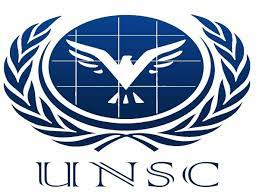CURRENT AFFAIRS
Get the most updated and recent current affair content on Padhaikaro.com
Rejection of UNSC Draft on Climate Change
- Vaid's ICS, Lucknow
- 28, Dec 2021

Why in News?
Recently, India joined Russia in opposing a draft proposal at the United Nations Security Council (UNSC) to bring climate change into its purview.
What is the draft resolution?
- The draft resolution allows UNSC to enforce and hold countries accountable for their promises to mitigate global warming.
- The current proposal is a revised version of a draft proposed by Germany that was opposed in the UNSC in 2020.
- This time the proposal was sponsored by Niger and Ireland.
- They claimed that 113 countries including U.S., U.K. and France, backed their view to integrate climate-related security risks into the UNSC’s conflict prevention mandate.
- However, the proposal was vetoed by Russia.
How Climate change is related to UNSC?
- Climate change has been discussed at the UNSC since 2007 and several UNSC statements reference the impact of global warming on conflicts.
- People in countries most vulnerable to climate change are also most vulnerable to terror groups and violence, hence connecting it to the peacekeeping mandate of the UNSC.
- Climate-related issues create conflicts over arable land, food security, desertification and forced migration.
- This in turn would increase climate refugees due to global warming and would eventually lead to conflicts that the UNSC needs to deal with.
- As per Peace Research Institute SIPRI report, 10 of 21 ongoing UN peacekeeping operations are located in countries ranked as most exposed to climate change.
- As UNSC earlier passed resolutions on women, gender violence and the most recent COVID pandemic, then even climate change should be addressed in its purview.
Why did India and Russia oppose the proposal?
- India and Russia believe that climate-change conflicts are not issues where the UNSC should interfere.
- India does not want UNSC to be given too broad a mandate to “intervene” and overreach on sovereign issues.
- There is already a UN Framework Convention on Climate Change (UNFCCC) which gathers voluntary contributions of countries to battle climate change and promote sustainability.
- India strongly supports climate justice and is “second to none” on keeping its climate commitments.
- However, it would be “misleading” to view conflicts through the prism of climate change worldwide.
- India proposed that it would support a more limited draft that focused exclusively on the Sahel region of North Africa, where desertification of arid areas is directly sparking water-related conflict.
- China too believes that UNSC should consider security risks driven by climate change based on “country-by-country or situation-by-situation” analysis.
Where lies the way forward?
- According to its proposers, the real objective is to ensure that the UNSC considers the impact of climate change along with other causes of conflicts it is debating.
- However, bringing climate change into an already polarised UNSC will deepen splits over an issue that concerns the whole globe and requires an undivided approach.
- India represents a huge population that is highly exposed to the risks of climate change, its voice will be important.
- It must be ensured that the global peacekeeping body doesn’t overstep its mandate
FACTS FOR PRELIMS:
Shrew species.
Prelims- Environment.
- Researchers have identified 14 new species of shrews on an Indonesian island where seven in that genus were previously known.
- They were named Crocidura mediocris,C. normalis,C. ordinaria, and C. solita.
- All these organisms weighed ranging from about 3 grams just over one-tenth of an ounce.
- The largest species had bodies averaging 95 millimeters, or about 3.7 inches long.
Source: The Indian Express.
Rogue planets.
Prelims- Science & Technology.
- Astronomers have discovered the largest group of rogue planets.
- Rogue planets do not orbit a star and exoplanet hunters have found few such planets in our galaxy.
- The researchers found the rogue planets in a star-forming region located within the Scorpius and Ophiuchus constellations.
- Scientists are studying rogue planets, to find clues to how these mysterious objects were formed.
- There could be several billions of these free-floating giant planets roaming freely in the Milky Way without a host star.